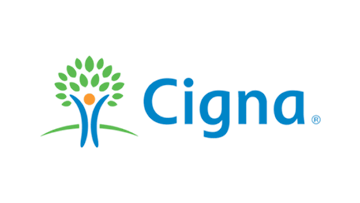
Community Support and Resources in Boise
Boise, Idaho, offers a rich tapestry of mental health services, catering to the diverse needs of its residents. A community-oriented approach ensures that everyone, from children to adults, finds the help they need. Organizations like the Idaho Federation of Families advocate for family-driven solutions, helping those with behavioral, emotional, and mental health challenges.
For those facing acute mental health crises, the Pathways Community Crisis Center of Southwest Idaho stands as a beacon of hope. Operated by well-trained professionals, this center is a safe, supportive space for individuals navigating mental health or substance use emergencies. This facility, located at 7192 Potomac Drive, Boise, ID, provides free, voluntary, and private support.
In the digital age, access to immediate support is critical. The Idaho Suicide Prevention Hotline is a vital resource, offering text and call support to those in need. This service exemplifies the city’s commitment to immediate and accessible mental health care.
Innovative Approaches by Idaho Behavior
Idaho Behavior is at the forefront of using evidence-based practices to assist individuals and families in achieving mental wellness. Their unique approach integrates individual and family therapy with skill-building sessions, allowing clients to address concerns like anxiety, depression, and autism spectrum disorders effectively. By prioritizing a compassionate and client-centered framework, Idaho Behavior empowers clients to achieve personal growth and behavioral change.
The organization is dedicated to ongoing professional development, ensuring its team remains informed of the latest advancements in behavioral health. This commitment guarantees that clients receive the highest standard of care in a welcoming and supportive environment.
Children’s Mental Health Initiatives
Boise’s mental health landscape is equally focused on the needs of younger populations. With specific services tailored to children and adolescents, mental health providers in the area address various developmental and emotional challenges. The Idaho Department of Health and Welfare plays a pivotal role in offering mental health services for children, ensuring that support is accessible and effective.
Community organizations often collaborate with schools and families to create holistic support systems. These partnerships aim to promote mental wellness from a young age, ensuring that children have the resources and resilience to thrive throughout their development.
Emergency and Crisis Intervention
In times of mental health crises, immediate intervention can be life-saving. Boise residents benefit from a range of emergency services designed to provide rapid support. The National Helpline is a critical resource, offering confidential treatment referrals and information about mental and substance use disorders 24/7.
The Veteran’s Crisis Line is another essential service available to Boise’s veteran community. This helpline connects veterans and their families with qualified responders, providing support around the clock.
Mental Health Advocacy and Education
NAMI Idaho, the National Alliance on Mental Illness, is an influential advocate for mental health in Boise. Its mission is to enhance the quality of life for those impacted by mental illness through advocacy, education, and research. The organization offers support groups and educational programs that foster understanding and acceptance within the community.
Education plays a crucial role in dismantling stigma and promoting mental wellness. By spreading awareness and knowledge, NAMI Idaho and similar organizations are helping to create a more informed and supportive environment for those dealing with mental health challenges.
Accessibility and Inclusion in Mental Health Services
Boise’s commitment to accessibility is mirrored in its inclusive mental health services. Organizations like the Idaho State Independent Living Council aim to integrate individuals with disabilities into the mainstream of society. This commitment ensures equal access to mental health resources for all community members.
By promoting a philosophy of consumer control, self-help, and equal access, Boise’s mental health services work toward a society where everyone, regardless of ability, can access the support they need to lead fulfilling lives.
Mental Health Services and Cultural Competency
The diverse population of Boise necessitates mental health services that are culturally sensitive and competent. Providers in the area are increasingly aware of the importance of understanding and respecting cultural differences in mental health treatment. This approach not only improves the quality of care but also ensures that all community members feel valued and understood.
Efforts to enhance cultural competency include staff training and the integration of culturally relevant practices, emphasizing the importance of inclusive and personalized care.
Substance Abuse and Mental Health Integration
Boise’s mental health landscape recognizes the intricate link between substance abuse and mental health issues. The city’s mental health providers incorporate comprehensive services that address both aspects, ensuring holistic care for individuals facing these challenges. SAMHSA, the Substance Abuse and Mental Health Services Administration, provides guidance and resources to support these integrated services.
By addressing substance abuse and mental health concurrently, Boise aims to improve outcomes for individuals, providing them with a path to recovery and wellness.
Empowerment Through Education and Support
Empower Idaho exemplifies the city’s dedication to using education as a tool for empowerment. As a crucial resource link for families and adult consumers of behavioral health services, Empower Idaho provides comprehensive educational materials and support networks. These resources enable individuals to make informed decisions about their mental health care.
Through workshops, seminars, and community events, Empower Idaho fosters a sense of agency and empowerment in individuals, encouraging them to take an active role in their mental wellness journey.
Future Directions for Boise’s Mental Health Services
As Boise continues to grow and evolve, its mental health services must adapt to meet changing community needs. Future directions include the expansion of telehealth services, which have become increasingly important in providing flexible and accessible care options.
Additionally, there is a growing emphasis on integrating mental health care with primary health services. This holistic approach not only improves overall health outcomes but also reduces the stigma associated with seeking mental health care.
Through innovative solutions and a commitment to inclusivity, Boise aims to continue improving its mental health services, ensuring all residents have the resources and support they need to lead healthy, fulfilling lives.

What are the top 3 mental health issues in Idaho?
In Idaho, like many states, common mental health issues that residents face include anxiety disorders, depression, and substance use disorders. Anxiety disorders can manifest in various forms, such as generalized anxiety or panic disorders, and impact daily functioning. Depression is characterized by persistent sadness and loss of interest, significantly affecting quality of life. Substance use disorders, including misuse of alcohol and drugs, are prevalent and often co-occur with other mental health conditions. Addressing these issues requires a multifaceted approach, combining therapy, medication, and community support. Considering these challenges, what proactive steps can communities take to better support those impacted by these conditions?
Where does Idaho rank in mental health services?
Idaho has faced challenges in terms of accessibility and availability of mental health services, often ranking lower compared to other states. Factors contributing to this include limited mental health providers, especially in rural areas, and inadequate funding for mental health programs. However, there have been concerted efforts to improve this scenario, such as increased support for telehealth services and initiatives aimed at attracting more mental health professionals to the state. These improvements are crucial for providing comprehensive care to all residents. How might advancements in technology further bridge the gap in service availability in Idaho?
What is the mental illness law in Idaho?
Idaho’s mental illness laws focus on protecting individuals’ rights while ensuring they receive necessary treatment. One critical aspect is the process for involuntary commitment, which is reserved for those who pose a danger to themselves or others. This law requires a legal process to assess the individual’s mental state and determine if involuntary treatment is warranted. The goal is to balance individual freedoms with the need for intervention in severe cases. Understanding these laws can empower families and individuals to navigate the legal landscape effectively. How might increased awareness and education about these laws benefit those dealing with mental health crises?
What support would be given to someone with mental health concerns?
Support for someone with mental health concerns can take many forms, including counseling, psychiatric care, peer support groups, and community resources. In Boise, for instance, Idaho Behavior offers tailored services such as individual and family therapy, skill-building sessions, and support for conditions like anxiety or depression. Community organizations also play a vital role, providing crisis intervention and ongoing support. The type of support needed depends on the individual’s specific circumstances and mental health condition. Encouraging open communication and seeking professional guidance can significantly impact one’s mental wellness journey. How does one ensure they are accessing the right type of support for their specific needs?
How does an integrated approach address both substance abuse and mental health in Boise?
An integrated approach to treating substance abuse and mental health issues recognizes the close connection between these challenges. In Boise, providers offer comprehensive services that concurrently address mental health disorders and substance use problems. This holistic approach includes therapy, medication management, and support groups tailored to tackle the interconnectedness of these issues. By treating both aspects simultaneously, the chances of successful recovery improve significantly. Such models often draw on resources from organizations like SAMHSA to implement best practices. What other innovative strategies can be employed to enhance this integrated approach further?
How is cultural competency addressed within Boise’s mental health services?
Cultural competency in Boise’s mental health services involves recognizing and respecting the diverse backgrounds of clients. Providers are increasingly prioritizing cultural awareness to offer personalized care that considers each individual’s cultural context. This includes staff training, adopting culturally relevant practices, and engaging community members from various backgrounds in the care process. Such efforts ensure that all individuals feel valued and understood, enhancing the effectiveness of mental health interventions. How might cultural competency be further integrated into other aspects of healthcare to improve patient outcomes?
What are the future directions for mental health services in Boise?
Boise’s future directions for mental health services involve embracing technological advancements like telehealth to increase service accessibility. There’s also a strong push towards integrating mental health care with primary healthcare services, which can reduce stigma and improve overall health outcomes. Another focus area is expanding educational initiatives to empower individuals and communities with mental health knowledge. As Boise continues to grow, these progressive steps are essential in adapting to the evolving needs of its residents. What role can community involvement play in shaping the future landscape of mental health services in Boise?
Resources
- Pathways Community Crisis Center of Southwest Idaho – Provides free, voluntary, and private support for individuals navigating mental health or substance use emergencies.
- Idaho Suicide Prevention Hotline – Offers text and call support to those in need of immediate mental health care.
- Substance Abuse and Mental Health Services Administration (SAMHSA) – Provides guidance and resources to support integrated services for substance abuse and mental health in Boise.
- National Alliance on Mental Illness (NAMI) – Advocates for mental health in Boise through education, support groups, and research.
- Idaho Department of Health and Welfare – Offers mental health services for children and adolescents in Boise.
- Idaho State Independent Living Council – Promotes accessibility and inclusion in mental health services for individuals with disabilities in Boise.
- Empower Idaho – Provides educational materials and support networks for families and adult consumers of behavioral health services in Boise.
- Veterans Crisis Line – Connects veterans and their families with qualified responders for mental health support.




